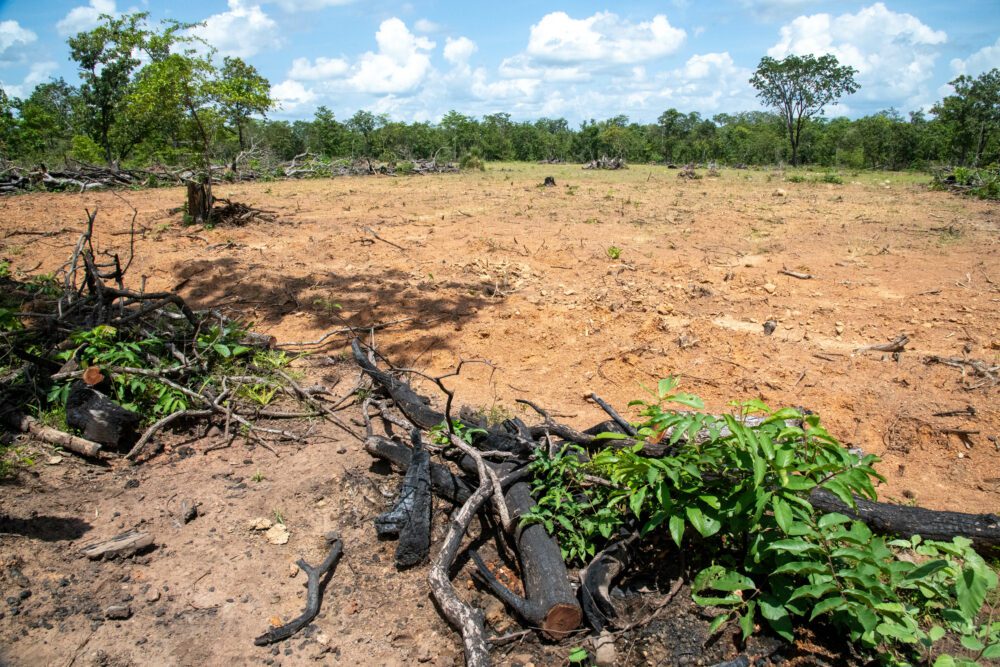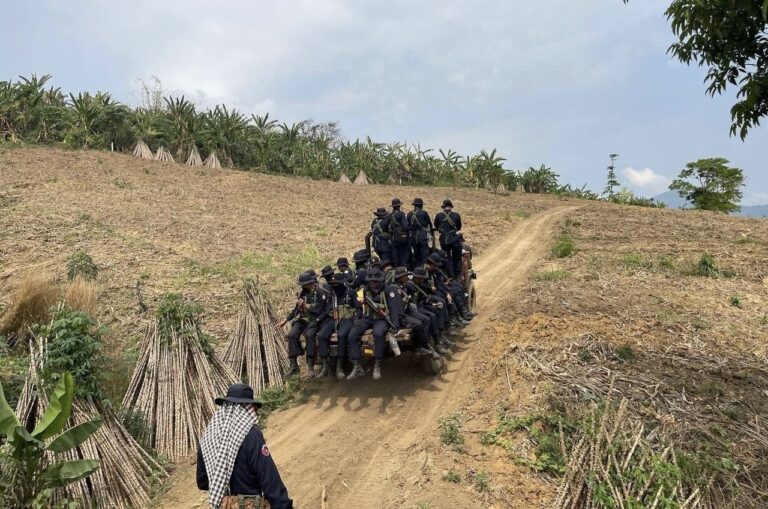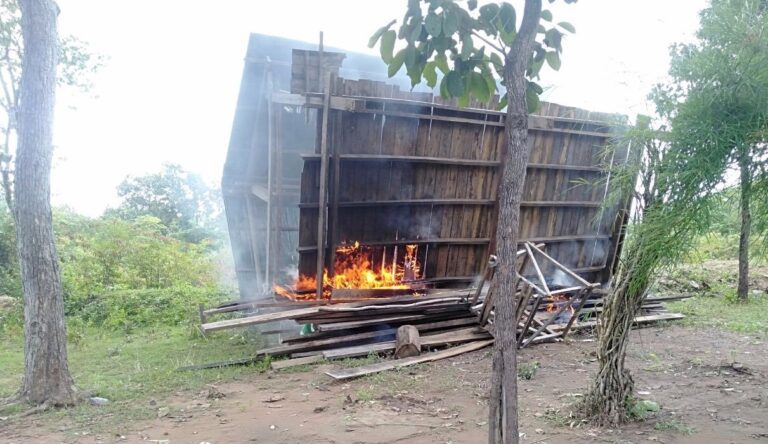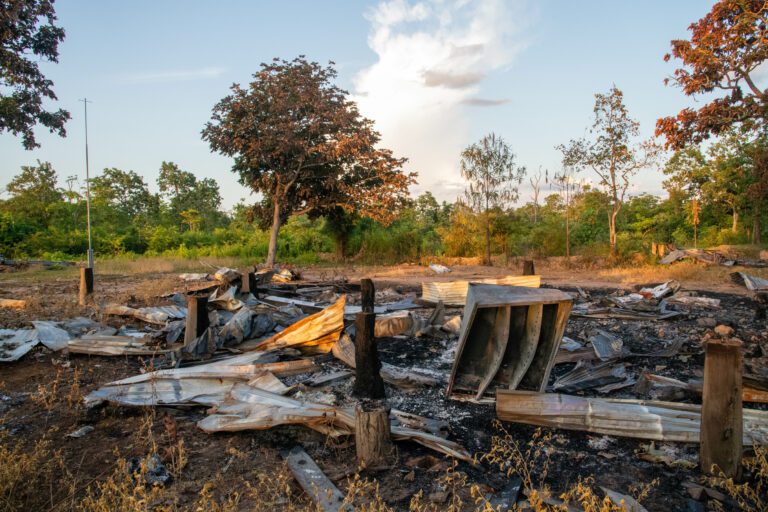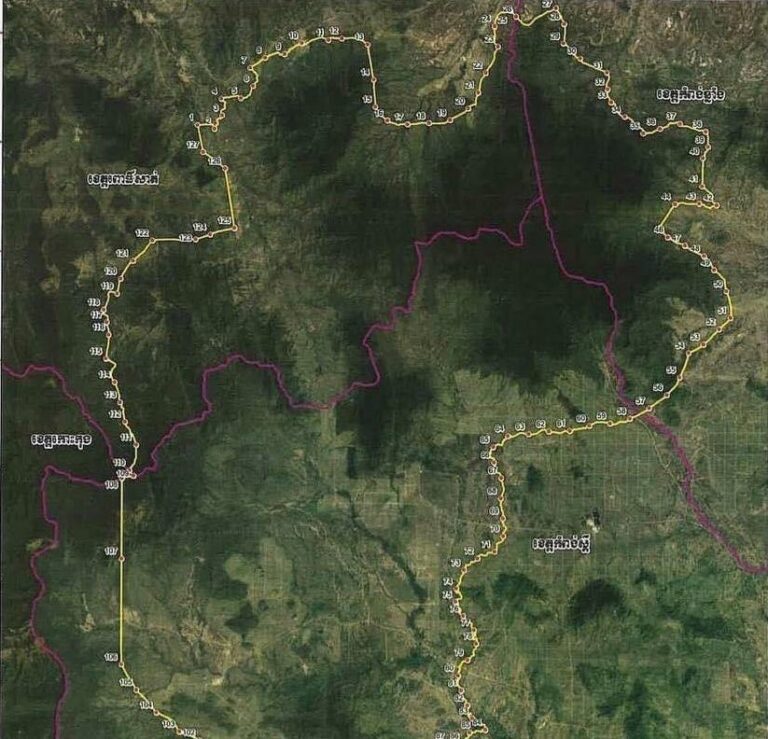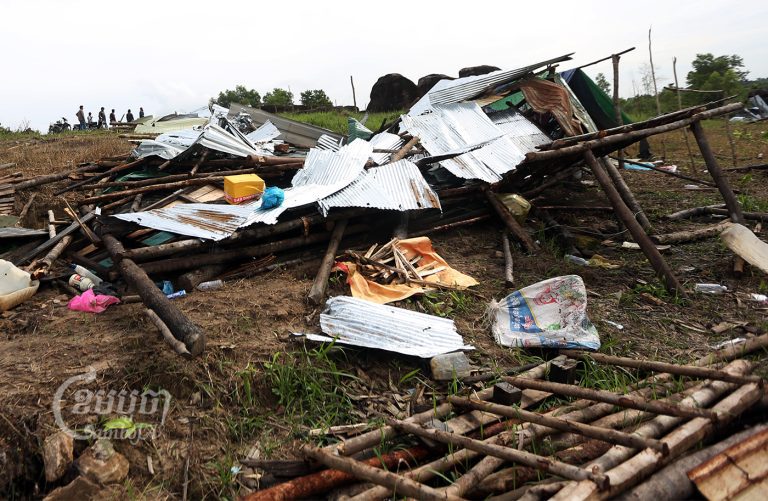The Kratie Provincial Court summoned two Kraol indigenous people from Srae Chis commune to appear in court for questioning this week for allegedly illegally encroaching on protected areas, but the two villagers did not show up.
The two summonses, dated August 1, state that Bun Sen and his son-in-law Kin Phinin cleared and burned forest land in their commune in order to take ownership of the property on May 20. If they did not show up to the questioning on time, the court would issue an arrest warrant, the documents state.
Sen was surprised to receive the summons because he said he had already stopped farming on the land when ministry officials told him earlier this year that the land belonged to the ministry. He even took down fences he had put up on the land, which he said he has been farming on since 1985.
“Since I was born, I never had any conflict with anyone. That’s why I took down the fences, because I do not want to have any issues,” he said. “I am worried.”
Environment Ministry officers have banned and threatened people from doing rotational crop planting, an indigenous practice, in parts of the commune, saying the land is in the Sor Sor Sdom Sat Tao protected area. The area was officially expanded from 839 hectares to 5,327 hectares in July.
Rumors of the expansion, and longstanding tensions between villagers and ministry officials, motivated community members to burn down a ministry station in the commune on August 5. Sen told CamboJA that he and Phinin were not involved in the destruction of the building.
Sen decided not to attend the questioning on Tuesday because he had already stopped farming on the land.
“After I stopped doing it [farming] and took down the fences, I already told the commune chief to inform them [the ministry],” he said.
Srae Ches Commune Chief Pich Touch told CamboJA that he did not know why the court still issued the summonses when the villagers had already stopped planting on the land.
“I want the Environment Department to inspect the site directly because the people have already removed the fences and the rice they had grown has been eaten by cows because there is no fence,” he said.
Touch added that the men should not be charged or convicted.
Pei Thi, first deputy commune chief of Srae Chis, said that the land had been passed down to Bun Sen from his parents, although they do not have an official land title.
Many Cambodians in the provinces do not have land titles granted by the national government. Records were destroyed during the Khmer Rouge’s rule and the present-day titling processes have failed to reach all Cambodians, especially indigenous communities.
“They have already handed over the land to the Environment Department and have already made an agreement. There is nothing to do with the Environment Department anymore,” he said. “Why do they have to go to court? What other issues do they go to court for?”
Pei Thi said the two men did not think that they were at fault, but if a second summons were issued, they would go.
Environment Ministry spokesperson Neth Pheaktra could not be reached for comment.
Kratie provincial Environment Department Director Chhay Duong Savuth declined to comment and directed questions to the provincial court, saying this issue related to court procedures.
Chhan Sreymom, spokesperson for the Kratie Provincial Court, declined to comment because she said she did not know about this case.
Yon Eam, Kratie provincial coordinator for the NGO Adhoc, told CamboJA that the men ceased farming on the land after the Environment Ministry told them to stop. But the villagers only informed the commune chief that they had stopped, not the Environment Department officials.
“I do not know if it was the villager’s fault or the commune chief’s fault for not telling the Environment Department,” he said, but thought that was what made the court issue the summonses.
Aside from this incident, the Environment Department has told villagers to stop farming on other parts of the commune, which has made it difficult for villagers dependent on farming to earn a living, according to Eam. Adding to the challenges these villagers face, many of them are illiterate and not well-informed on environmental law, he said, which makes it difficult for them to navigate the legal system.
“I went to meet people who have been summoned by the court and provide them with some [information on the] law and tell them that Adhoc will provide support, such as a lawyer, to help them,” he said.


